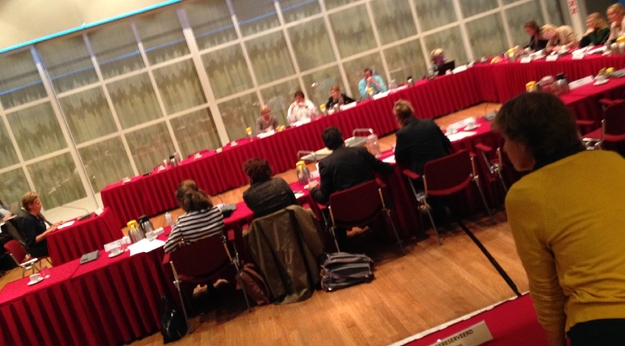I am here today in my capacity as a Professor of Evolutionary biology and appointed University research chair in the faculty of earth and life sciences at the VU university amsterdam.
I am a scientist rather than artist, so in a very basic way, I stand before you as an outsider.
But…being an outsider has its advantages. It can give you a different vantage point.
In this case, the vantage point is clear: the Netherlands enacts among the most, if not THE MOST, effective policies for supporting collaborations among scientists and artists.
The most radical, daring, informative, controversial bioart is coming from the Netherlands. I see this first hand
The Netherlands is a leader in connecting scientists and artists. This is the work of organizations, such as Mediamatic and and Waag that attract top talent, and push them to question the big ideas.
These types of organizations form an indispensible infrastructure for artists and scientists alike.
-they form a much needed liason among art and science
-they connect the local with international
-they make it possible for artists and scientists alike to take RISKS
-they support research, production, presentation and reflection
But why should we care?
We are in an age in which science is moving incredibly fast. arguably our technological advancements are reaching a pace never seen before. The public is getting left behind.
Art is the first area of society where this is happening in a critical way. We need that. Its not just the artists that need it – its the scientists.
We have a duty to response to this. We need to support the flexible organizations that allow artists to engage, question, comment on these advances. It is these artists and these organizations that provide the ideas, fodder, debates. They are bridge for innovation to reach the public. And we have to make sure that these bridges are a reliable part of our infrastructure.
To end, I want to say, as an evolutionary biologist, I study adaptation of organisms. What are the traits, strategies that organisms use to increase their survival and success.
And the answer seems to be the same across a huge diversity of species. Organisms need to response quickly and effectively to maximize benefits.
It is the same with the arts – don’t force all of it to be part of an archaic machine composed of ornery institutional rules and norms. Let them be elastic, responsive. Let them, like all organisms on this planet – be ABLE to evolve and adapt to changing times.
So this the advice: Make sure we can depend on unpredictable development. Build room for the future of art! And include it in your Basis InfraStructuur.

